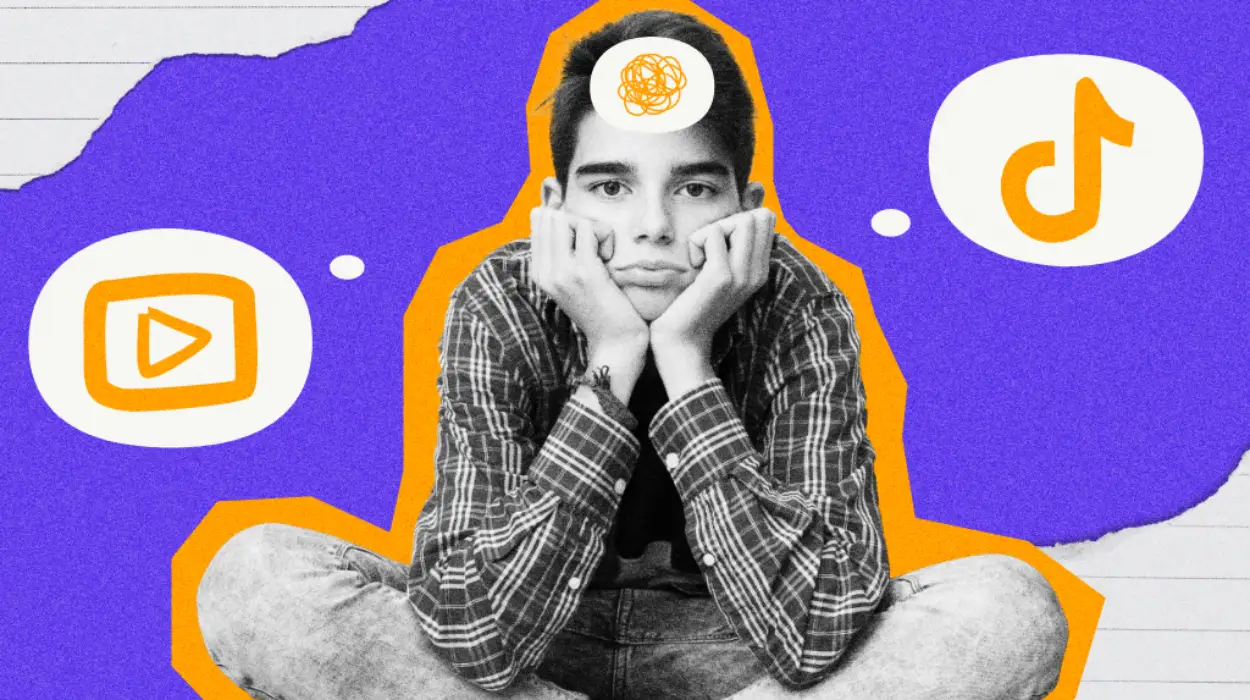UK (Parliament Politics Magazine) – A UK survey finds that average viewers lose focus after 15 minutes, blaming social media notifications, doomscrolling, and constant online distractions.
As reported by The Telegraph, most Britons lose focus after 15 minutes of TV, blaming social media notifications as the main distraction.
What did the survey reveal about Britons’ attention spans?
A survey by Perspectus Global found that readers generally struggle to maintain focus beyond 14 minutes of reading.
According to the survey, 43% of respondents cited Instagram and Facebook notifications as a distraction. Around 41% of those surveyed said message alerts on WhatsApp disrupted their focus.
Over 25% cited “constant Googling” as a reason for losing focus, while 22% blamed “doomscrolling” on negative social media news.
People could only pay attention for 11 minutes during online calls, 13 minutes in in-person meetings, and 12 minutes while writing emails.
The survey revealed that participants lost focus after roughly 11 minutes while listening to podcasts outside work. Respondents could focus slightly longer, around 12 minutes on daily tasks and 14 minutes during family gatherings.
The poll found 80% of participants admit to frequent distractions, roughly eight times a day. Respondents highlighted post-lunch slump, tiredness, and sugar crashes as reasons for losing focus.
Almost half of the respondents reported lower productivity in the afternoon, with 30% citing sugar crashes. The poll finds 83% want improved focus, with over a third turning off notifications to stay concentrated.
These findings come as the Liberal Democrats call for social media apps to carry cigarette-style warnings and enforce a two-hour “doomscrolling” limit for children.
What did Victoria Collins say about social media risks for youth?
Addressing the Liberal Democrats party conference in Bournemouth this week, Victoria Collins MP, the party’s science and technology spokesman, stated,
“We have long recognised that online content poses a threat to public health. That’s why I’m calling today for addictive social media apps to come with mandatory health warnings for under-18s.”
She said,
“Just like cigarettes or alcohol, these addictive products carry well-documented risks, especially for young people.”
Ms Collins stated,
“The evidence is clear that excessive use of these apps exposes children to mental health issues, to anxiety, sleep disruption and to real harm to attention spans. Don’t they deserve to know that?”
She added,
“When we pick up a pack of cigarettes or a bottle of wine, we expect to be told about the harm those products will pose to our health. So why is social media, the key driver of a crisis in young people’s mental health, any different?”
Key facts about the social media users in the UK
In the UK, 54.8 million people, or 79% of the population, use social media. The gender split is nearly equal, and 97-98% of Gen Z and Millennials are active online.
Young adults (18-24) spend the most time, averaging over six hours daily. WhatsApp is the most used platform, Facebook remains strong, and TikTok dominates in engagement.
UK Online Safety Act
The UK Online Safety Act requires online platforms to ensure user safety. It includes strict protections for children, such as age checks and harm prevention.
It applies to social media, messaging apps, forums, and search engines, even those based abroad, targeting the UK.
Ofcom oversees enforcement, imposing fines up to £18 million or 10% of global turnover for violations.


